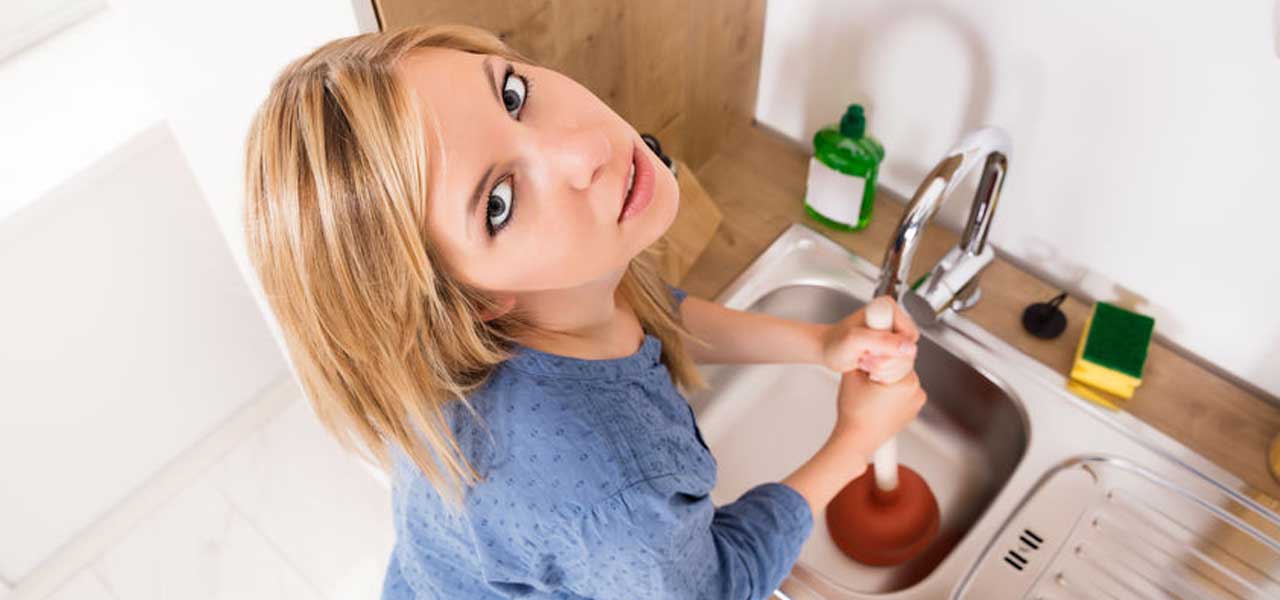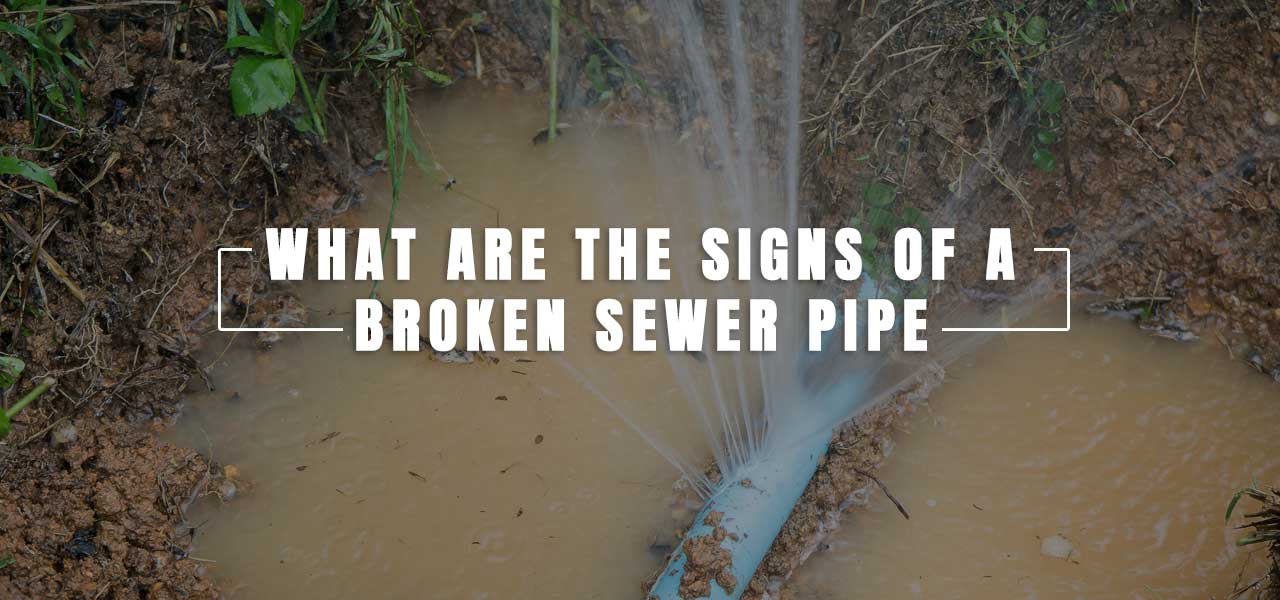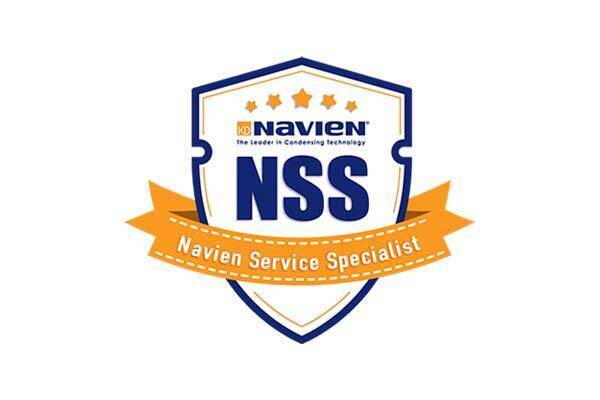WHEN IS THE BEST TIME TO THINK ABOUT DRAIN MAINTENANCE?
The most straightforward answer to that question is “all the time”!
Drain maintenance in Houston does not have to involve a visit from your local plumbing company; it is something that you can do every day. One quick tip for keeping a clear drain is; being mindful of what you put down your garbage disposal will go a long way toward preventing the need for costly drain cleaning services. To avoid slow shower and bathtub drains, try installing a silicone drain protector to stop hair from entering the drain.
WHAT CAN I DO TO PREVENT DRAIN AND SEWER LINE CLOGS?
For those who want to be even more proactive regarding a maintenance schedule for your pipes, Nick’s Plumbing & Air Conditioning recommends using a biologic drain cleaner. Biologic-based drain cleaners like Bio-One use naturally occurring enzymes to dissolve grease, hair and other residues that collects in your drains. The benefit of a once-a-month biologic drain cleaner application is that there are no harsh chemicals like lye or phosphoric acid to eat away at your pipes, as it clears the clog. In addition to the damage they can cause to your plumbing, chemical-based drain cleaners can splash and cause severe burns as well as various illnesses from the toxic fumes they emit.
HOW DO I KNOW IF I HAVE A DRAIN OR SEWER LINE ISSUE?
The first sign of having drain problems is usually a slow-to-empty kitchen sink, bathroom sink, or shower drain. Many of these slow-drainage issues can be remedied by using a plunger or a small plumbing snake to pull out any debris. Once this is done, if the initial problem is quick to recur, it indicates that there is a more significant problem somewhere further down the piping structure.
Clogged drains and sewer lines are not only inconvenient; they can lead to raw sewage backing up into your home not only through sinks and bathtubs but from under your floors and inside of your walls. As water and other debris build up in a clogged pipe, the fittings along the pipe or the pipe itself will burst sending hundreds of gallons of water and raw sewage into the crevices of your home. The cost of the remediation and repair of a home damaged by a raw sewage leak can quickly run into the tens of thousands of dollars.
Protect yourself from the unnecessary stress and expense of drain and sewer line failures by taking drain maintenance in Houston into your own hands. The tips we’ve given you in this blog, along with a healthy dose of common sense should keep you from needing the services of a professional plumber to keep your drains maintained.
If you have an issue with your kitchen drain, bathroom or utility drains or sewer line issues, call Nick’s Plumbing & Air Conditioning Services today. Nick’s Plumbing & Air Conditioning has been the drain maintenance in Houston experts since 1979, and they guarantee their parts and workmanship. We offer cost evaluations, and we love to give second opinions!
Call Today; We’re on the Way!
More on Drain Maintenance in Houston on The Potty Mouth Guys Show
Nick’s Plumbing & Air Conditioning Live Video Transcription:
On today’s show. It’s all about your drain maintenance in Houston.
John Eccles Richard Saad. Why do you need it? Why do you want it? When’s the right time to do it? Now is the time to do, that’s the questions of the day when, when it’s overflowing, it’s on the ground outside, bubbling up inside, spreading out.
When’s the right time to do it, John? Let’s talk about it. Okay. So when we’re talking about drain maintenance, we’re talking about, we’re going to try to discuss some tips and tidbits on help y’all realize, when is it time to address it? When you, when it’s too late. All these things happening, right? When customer calls calls, uh, when customers call us with stoppages, um, it’s normally they waited a little too long. It was something that could have probably been alleviated a little earlier or it’s just like anything else, right? If you let your brake pads go too long, it can get into the rotors. Same thing here. The longer you let it go, worse things happen more. I think that’s called reactive instead of proactive. That’s what you’re describing is a right, right? That’s exactly right. So we’re going to wait for failure or where you can get it before or you can get it before.
Yes. I mean when your drains are slower, sluggish and you notice that that’s when you want to call it and get it addressed at that point, if not, you’re playing with a time bomb of, of a sewer backup that could come back up into the house. And that happens a lot. And when that does happen, now you’re talking about possible damage to flooring walls, other things in the home. If it’s upstairs coming through the ceiling and there’s some different things that can happen that sounds like insurance number one insurance claim at right. Number one, you know, the state of Texas. Um, a lot of people tend to think that, you know, if it backs up, it’s going to go into the tub. What else can happen? Oh, I can go on the floors underneath the hardwood floor. Yeah. And that’s really nasty biohazard stuff when it goes underneath your hardwood floors.
It’s a big, big deal at that point. It’s a big headache for our customers. So we’re going to talk about is, is, okay, so how do we not let that happen? Well, first of all, if you notice that there’s any sort of, uh, um, irregularity in your plumbing system, right? Hey, my sinks draining slow, my commodes not going down as fast, my showers running slow. Those are the Times that you need to start calling. Not when. Oh, it won’t drain it all. That’s, don’t get me wrong. We can still take care of it. But you’re, you’re putting yourself on again on that ledge that you don’t want to be pushed off of. You know, and I think this all starts with, you know, customers putting things that necessarily don’t go, aren’t supposed to go down their drainage system and they put it down there. This, that’s one of the number one reasons that we get phone calls about things being backed up.
You know, from the kitchen area, putting stuff down to the disposal and kitchen pipes that we’ve talked about numerous times. You know, bones, peelings, pastas, rice, grease, all those things are not designed to go down your kitchen pipe. Not at all. You know, they should be scraped off into the trashcan. Then you go into the bathroom, you know, you know everybody loses hair when they shower. Right. And Look at mine. Look at that guys. Uh Huh. And I went down the drain. Well, the good thing is, is that they have catchers. Then you need the empty though so it doesn’t get down the drain. You need to empty them and pull it out. Dump it in the trashcan. Now things that will go down the pipe that ended up co, what’s the word I can never say? Why you’re waiting into the pipe. Soap. Scum. Um, different hair products, stuff like that.
You can’t do nothing about that. It’s going to go. Those are the things that is, is normal. You go to the commode, no toys, right? No toys, no toys, right? No army man. Yeah. None of that. It should be for, you know, human, you know, um, yeah. Human waste and toilet paper and that’s it. You know, anything other than that. It shouldn’t be down there. You know? No baby wipes. No baby whites for sure. No old man wipes. No, none of that neighbor towels. Nope. No, we get that a lot at restaurants. We get a lot of that in my restaurants. We do customers put it on paper towels because it’s not their train. So that’s exactly right. But it helps to work production. And so with that being said, all those things create slow, sluggish drains or immediate stoppages. Um, so if you don’t put those down there, then okay, you’ve alleviated a huge portion of, okay, I’m maintaining my system. Another thing that makes the differences, do you have cast iron? Do you have concrete? That’s the next day you have Calais. Absolutely. Versus PVC. If you’re in an older home, let’s talk about Heights. Montrose West, U Meyerland, BellAire, Memorial, going through these homes were built pre seventies. Most of them. And from that standpoint, you guys are going to have cast iron, you’re going to have clay, you’re going to have concrete.
And those two materials are porous, right? And they grab things more. Uh, same with the cast iron cast. Iron is not porous, but it grabs and grips things more than what PVC does. Pipe is not extremely smooth. Your maintenance will look different from somebody that’s in a newer home with PVC. So in saying that, right, you’ve got to take more precaution, more care. And when you start seeing things get sluggish before you have a complete shutdown, you need to call somebody like us or you’re going to attempt it yourself. That’s right. But it’s not going to fix itself. That’s the thing with plumbing. It doesn’t fix itself. You have to address it. You just can’t push it and expect for that to go away because it’s not. And in these older homes, you’re also could have root intrusion, uh, in your main line outside and your sewer.
And when you have root intrusions, uh, toilet paper, we’ll pack up on those routes and eventually you will get a complete shutdown. But the typical side of that is your toilet becomes sluggish. That’s right. That’s right. It will not flush normal. And you just, you didn’t even put anything in the toilet and it’s not flushing normal. That’s when you know to call somebody like us. And if you are going to be reactive on this, you get a complete shutdown on the system, then it goes into the tub or it starts spreading out underneath toilets and that’s when it gets really bad work and go into walls and go underneath hardwood floors. So you’re much better off being proactive. That’s right. Right. When you start seeing those telltale signs. So what’s another sign, John, when like let’s talk about kitchen sink drains. We’ve got a grease going down them, right?
That coagulate in grip, that pipe. Absolutely. And all of your food particle particles, particulates, we’ll go down. Right. And then those get stuck in Greece and it becomes a nasty mess. I don’t know if you guys have ever seen anything that comes out of that kitchen sink drain, but it is a black nasty coagulated mess. You know, people that use a lot of grease at all, even I’m almost calcify. It’ll become a solid, it does. It’ll, it’ll, it’ll come out in like literally logs. Yes. Yes. And it’s really hard to clear. Oh yeah. You know, we’ve got to use typically a couple of different types of machines to get that clear. That’s it. So on your kitchen sinks, when you start seeing that it is becoming sluggish, you definitely need to get that rectified. Now before that nasty water just comes up in the sink and stays and doesn’t go down. So let’s talk about AC drain lines. We’ll see you’re talking now, it’s the season. You’re talking about sluggish, right? If you live in Houston, there’s a great chance that you went to your lavatory and went, oh man, it’s not draining the well. Why is that? I haven’t even been using it or I never let the hair go down. I never do x, Y, z. But some reason why it won’t drain, I don’t get it. Water’s coming up. Normally that water’s cold. That’s the best one.
We get calls all the time, you guys that, hey, this isn’t my guest bathroom. Nobody’s ever used it and there’s water coming up in my laboratory. Well that’s because the AC drain line is coming down and it stopped up that pipe and now there’s nowhere for the water to go. It just keeps backing up. And eventually what could happen is it overfills that lavatory and spills out on the floor. And that’s going to happen usually when you’re not home and when, and it’s usually going to happen when it’s upstairs and when you come home, it’s going to be raining downstairs. We get those often during the summer and we’re heading right into that season. And when it doesn’t happen to you, you never think about it, but you need to do ac maintenance. It’s the season. Yes. Do it now, do it in the middle and do it at the end. Yep. Right. That’s right.
All right. So I mean going into the season, now’s a great time to go ahead and take that precaution to go ahead and address those drain lines and maybe go ahead and have it serviced, makes sure that everything’s clear it’s going to run. Okay. You know? Um, along with that, right. You know, there’s a great products, right? There’s tons of products that you can use for this kind of stuff. There’s only one that we’re going to recommend, but you can use a bunch of different products. The do it. The one that we recommend is an organic product called bio one. You know, when we’re going to do something like this, especially we’re going to put something in our plumbing system that’s going to end up somewhere else going through our water treatment facility, stuff like that. We think that it should be a green product and it works.
Great. Works awesome. Awesome product. Uh, you know, we talk about this all the time. We were cooking one time in the warehouse, spelt a bunch of grease and it ate up all of it. It’s a long story, but we should have videoed it if we would have thought about it, but it was, it’s a really good product. Works to a t. And what’s really cool about it is, is that it’s actually enzyme enzymes that are kind of put in this. Um, what’s the state that I’m talking about? Um, whether it’s like a resting state basically. So they’re not active and they get activated when they hit water and they start eating. That’s right. And they multiply and they start eating and they multiply and they eat and they eat and they eat until they liquefy the grease basically in the food man. It’s unbelievable. Fantastic.
Unbelievable. And it works well with the AC drain lines. You know, we’ve tried it on our bottle, it doesn’t recommend it, but we’ve called the manufacturer and they said absolutely. And I’ve actually used it personally at my home. I have this problem every year, so I’m one of the guys that I have to maintain mine if I don’t want my wife’s side, the Stop Up. And it’s a wonderful product to put down prior to and during, you know, it, I mean maintenance isn’t something that you can only do once a year. Well on some things you do, but on your drains and stuff like that, it’s, it really comes down the amount of use. And we all know that Houston air conditioning, summertime, we’re using it 24, seven 24. It’s usually my ac stops up two to four times a summer. Yup. Yeah. And uh, I started using the bio one product. It’s awesome. Don’t have a problem. Yeah, I go pour a little bit of in there once a month done. You know what, I have a problem when you don’t maintain. That’s exactly right. If I don’t treat it, you know like if I don’t treat it in the spring, I’ll have a summer problem for sure. Yeah. If I’m proactive. Last year I was pretty proactive. I didn’t do it. I didn’t have one the year before that. I think like I had four or five ac stoppages because I always tell everybody, Dude, port once a month. Yeah, and you can use Clorox too. Yeah. But you do it once a month. Right. And that will keep your ac drain running. Well. Yup. Typically all summer and keep us away from getting you on stock. You know that bio one is actually a good product to use and all your drains if you’re talking about maintain. Yeah. If you’re doing what we’re talking about, not putting the stuff in there that doesn’t belong, but you drop it down, your shower dry and all that soap scum and stuff, it really, really aids and keeping that thing pretty. Christine. Same thing with your kitchen line. It really aids and keeping stuff moving, you know, and, and talking about shower drains, you know, and when you get a slow shower drain, there’s also something else.
What happens to showers, you guys and you guy it sometimes a horrific smell comes out of a shower drain. Oh yeah. And when that water is pushing down on the drain, it’s pushing air up. And if you smell something, you know, typically that’s going to be bacteria holding in that pipe right there. And it smells bad. But people think it’s sewer. Right? But it’s actually not. But that’s part of drain maintenance. Yeah. If you smell that you need to do maintenance immediately because that is going to be some type of bacteria that is growing and eating a collage related message that’s located in the p trap coming up towards the pipe. And that happens often to you guys to wear a that smell and there’s ways that you can clear that smell. And one of them is the bio one. Yeah, absolutely. They will eat that other bacteria and the problem and then there’ll be flushed down there. Moderate.
That’s it sends you go when I to, right. But so, you know, in conclusion, I think, you know what we’re saying is, is if you keep your dry and free of things that don’t belong, right. If you call prior to it becoming a big issue, um, a lot of times the, your drain system won’t be a big problem for you unless you have something that’s not a maintenance thing. Root intrusion, right. You have a tree getting in there, you got old pipes that collapse. Those are things that you can’t maintain. They just happen. That’s right. Time. But if you maintain them, hopefully you won’t be as too much on trend. But if they, if you do need help, we’re always a phone call away. That’s exactly right. Any questions, concerns, give us a call. We’re always there most of the time, or at least one of us. Thank you very much. You guys. I’ll see you next week.


























